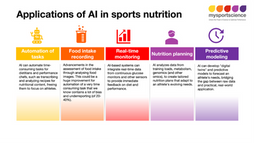Alcohol and recovery
- Asker Jeukendrup
- Feb 3, 2016
- 3 min read
Updated: Oct 21, 2020
Recovery starts immediately after exercise. It is well established that the first hours after exercise are particularly important for recovery as well as longer term adaptations. Nutrition plays an important role in this process: it helps to restore muscle glycogen, hydration and may enhance protein synthesis. Protein synthesis is important for repair and adaptation. The ingestion of ∼20–25 g of high quality protein soon after exercise, repeated every 3-4 h has been shown to maximise the anabolic response in skeletal muscle.

A sporting culture
In many sports there is a culture of consuming alcohol after training and competition, sometimes in large amounts. “binge drinking” practices are not uncommon in certain sports (especially team sports). In fact, studies suggest that athletes are more likely than the general population to drink alcohol to excess! This alcohol consumption may have an impact on the recovery process. First it may directly affect the processes of recovery in the hours after exercise. Secondly there may be indirect effects because drinking often replaces eating and resting adequately as a result of intoxication.

Alcohol and muscle glycogen synthesis
Alcohol intake has been shown to impair the rates of muscle glycogen synthesis after exercise. These effect were mostly because of the indirect effects of alcohol consumption; because athletes were drinking they were not taking in carbohydrate as recommended for optimal recovery. The direct effects of alcohol on the process of glycogen synthesis were less clear (1).
Alcohol and protein synthesis
More recently the effects of alcohol consumption on protein synthesis were investigated (2). In this study, alcohol consumption reduced muscle protein synthesis following a bout of concurrent exercise. This occurred even though protein was ingested with the alcohol. It was therefore concluded that alcohol ingestion suppresses the anabolic response in muscle and may therefore impair recovery and adaptation to training. Ultimately this may have a negative effect on performance.
Alcohol consumption reduced muscle protein synthesis following a bout of concurrent exercise
Other effects
In addition to effects of muscle glycogen and protein synthesis, alcohol consumption has been linked to reduced sleep quality. Heavy episodic alcohol use, and associated reduced sleep hours, results in a reduction in lower body power output the morning after a drinking session (3). Other studies showed effects on cognitive function the morning after and suggested increased risk of injury.
Critical note
It must be noted that most of these studies were designed to mimic binge drinking and thus alcohol intake was high. In many studies an intake of 1 gram of alcohol per kg body weight was used. That is 80 grams for an 80 kg person (176 lbs). This equals 10 units or 3.5 pints of beer or 4 (medium, 275ml) glasses of wine. 3.5 pints may be a lot for some, but is only a "warm-up" for others after a game!
Of course, it remains to be seen what the effects are of modest alcohol consumption (for example one pint or one glass of wine). Those effects are likely smaller and perhaps even negligible. Studies need to be performed to confirm. Until that time, the general advice is clear: if you are serious about performance, avoid binge drinking.
References
3. Prentice C, Stannard SR, Barnes MJ. Effects of heavy episodic drinking on physical performance in club level rugby union players. J Sci Med Sport. 18(3):268-71, 2015.
4. Murphy AP, Snape AE, Minett GM, Skein M, Duffield R. The effect of post-match alcohol ingestion on recovery from competitive rugby league matches. J Strength Cond Res. 27(5):1304-12, 2013











